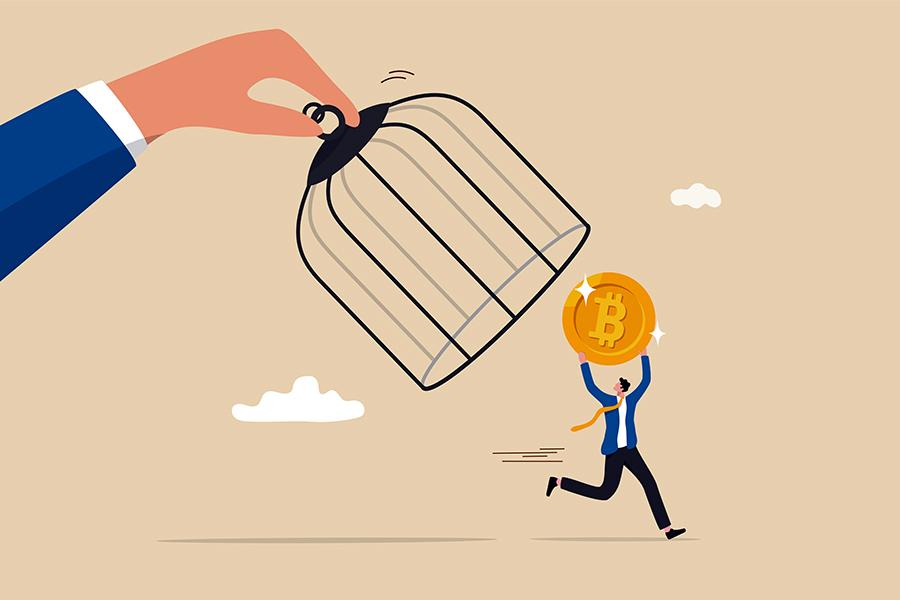Should you buy or sell your cryptocurrencies?
Panic has set in, in the Indian cryptocurrencies market after the Centre declared its intentions to propose a bill to possibly ban or regulate the new asset class. Here's what you should do if you’ve already invested or are likely to
Should you HODL or sell under FUD? This is the million-dollar question every Indian cryptocurrency investor is contemplating right now. HODL—hold on for dear life—or FUD—fear, uncertainty, doubt—in the crypto universe are more relevant than ever amidst the news of the possible ban on crypto in India.
Will the government ban cryptocurrencies?
Only time will tell. This is because the description of the bill, which will be discussed during the upcoming parliamentary session, says it intends to ban all private cryptocurrencies. There is no clarity yet, in terms of what the government means by ‘private cryptocurrencies’. It is better to avoid any speculations and wait for more clarity once the bill is actually passed. However, this is a welcome move because the purpose of the cryptocurrency bill is to set up a regulatory framework to curb any illegal activity in this space and protect the common investor.
What should an existing crypto investor do?
Many experts are telling cryptocurrency investors not to press the panic button and avoid panic-selling based on speculations.
Before you plan to sell or hold your cryptocurrency investments, I have a different fundamental to discuss with all investors—those who have invested in cryptocurrency and even those who haven’t, for that matter.
Never invest in any financial instrument without understanding your risk profile. Always create a well-diversified portfolio across different asset classes based on that risk profile.
I am assuming that an existing cryptocurrency investor has done their due diligence before investing; they know the risk involved in this highly volatile, evolving market that never sleeps and is traded globally. There is no long-term historical data to decipher its price movement. This makes it an even more 'high-risk, high-returns' proposition. To top it all, there is now a regulatory risk proposed by the Indian government.
If you have invested carefully and, only a small percentage of your overall savings/net worth, then you may not worry. But if you invested to make quick money—thinking that a coin like a Doge or Shiba can send you to the moon, you may need to worry about who will bring you back when the value falls?
Whatever the case, let’s take this opportunity to understand the risk profile, to make an informed decision about the future. For those who have duly done their risk profiling before investing, there is no reason to worry. They knew what could or might happen to cryptocurrencies—ban or no ban.
Should you sell your crypto?
The easiest thing to do is to sell your cryptocurrency and enter again if the government regulates it as an asset or commodity. But then you may end up selling at a lesser price than global exchanges—something we've already witnessed when this event risk arose two days ago.
However, if the government bans cryptocurrency investments, then the trading volume on different exchanges may vary. It may become difficult to find buyers when everyone is selling. There would be outside buyers, of course, who will be interested in a good arbitrage opportunity on Indian exchanges. But this means, selling your cryptocurrency for a lesser price or waiting for the right time to sell within the window that the government might provide to sell your cryptocurrencies.
As you may notice, there are a lot of ifs and buts about losses one may book in the case of a blanket ban.
Should you hold or transfer?
If you decide to hold instead of sell—the wait and watch approach—then it will benefit you if the government decides not to ban but regulate cryptocurrencies.
In another scenario, if you don’t want to sell, you can also transfer it to an exchange in a different jurisdiction. You can transfer your holdings from one wallet to another wallet. But in that case, if there is a ban, you will need to see what taxation and regulatory framework one needs to follow as an Indian resident who, otherwise, cannot invest in cryptocurrency.
Either way, right now, it’s a wait and watch.
The writer is a chartered accountant and a founder-mentor of NRP Capitals.
The thoughts and opinions shared here are of the author.
Check out our end of season subscription discounts with a Moneycontrol pro subscription absolutely free. Use code EOSO2021. Click here for details.
